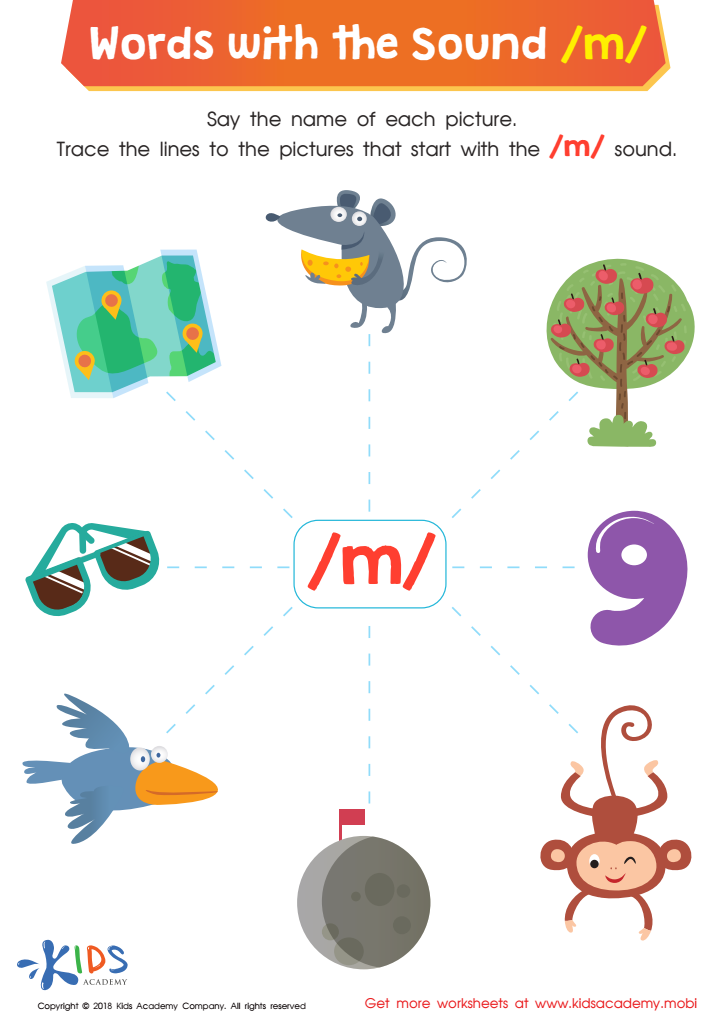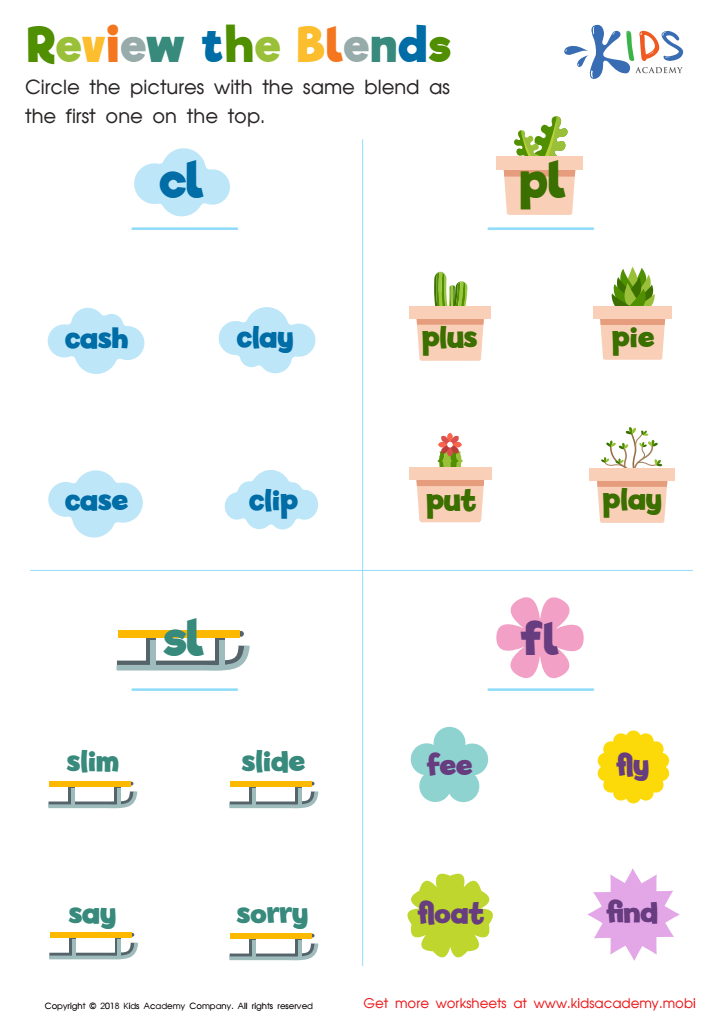Phonics practice Normal Consonants Worksheets for Ages 4-6
5 filtered results
-
From - To
Enhance your child's reading skills with our engaging Phonics Practice Normal Consonants Worksheets, specially designed for ages 4-6. These printable resources from Kids Academy focus on helping young learners recognize and pronounce consonants accurately through fun and interactive activities. Each worksheet features a variety of exercises that promote letter-sound correspondence, reinforcing foundational phonics skills essential for early reading development. With colorful illustrations and child-friendly instructions, these worksheets make learning enjoyable and effective. Perfect for both classroom and home use, our phonics practice materials will boost your child's confidence and proficiency in reading. Start building a solid phonics foundation today!


Twin Onset Worksheet


Words with sound p Reading Worksheet


Words with sound f Reading Worksheet


Words with Sound M Reading Worksheet


Review the Blends Worksheet
Phonics practice with normal consonants is crucial for young children, especially those aged 4-6, as it forms the foundational building blocks of reading and writing skills. At this critical age, children are in a prime developmental stage to grasp the sounds that individual consonants make, aiding in their ability to decode words.
Understanding phonics involves recognizing the relationship between letters and their corresponding sounds. By mastering normal consonants, children confidently progress to blending these sounds to form more complex words. This foundational skill enhances both their reading fluency and comprehension since they can rapidly recognize and make sense of new words. The ability to decode words swiftly enables children to focus on the meaning behind the text rather than getting stuck on individual words, fostering a love for reading.
Moreover, strengthened phonics skills promote better writing abilities. When children can easily identify and produce consonant sounds, they can spell words more accurately, boosting their confidence and encouraging more practice.
Investing time in phonics practice benefits not just academic skills but also supports overall language development, which is pivotal for effective communication. Therefore, parents and teachers should prioritize phonics practice to give children a strong, early start in literacy, setting the stage for future academic success and lifelong learning.

 Assign to My Students
Assign to My Students














